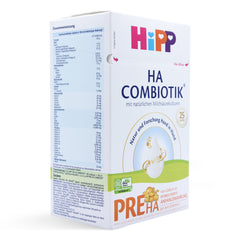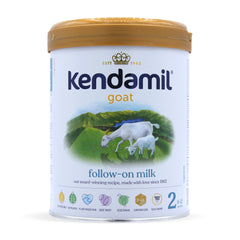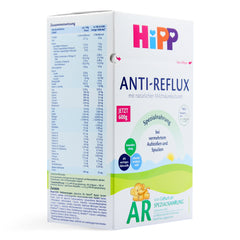Common Misconceptions About Formula Feeding
Debunking the Myths Around Formula Feeding
Quality nutrition plays a crucial role for newborns. While breastfeeding provides excellent benefits, many parents eventually transition to formula feeding to support their baby's immunity and overall health. This combination approach can effectively support infant development and care.
Unfortunately, persistent questions surround formula feeding consistency and safety. The debate between formula-fed babies vs. breastfed babies remains contentious among parents and healthcare providers. Many people incorrectly believe that formulas represent a poor choice with lasting negative impacts on children. Some even claim that formula feeding affects cognitive development and mental growth.
Examining formula versus breastmilk research helps dispel widespread misconceptions. Minimizing these misunderstandings benefits all families. Both breastfeeding and formula feeding represent completely normal, beneficial approaches to infant nutrition.
Myth: Are Formula-Fed Babies Less Intelligent?
Are formula fed babies less intelligent? This question troubles many parents today. Intelligence isn't determined by nutrition source alone - formula feeding provides excellent nourishment for proper development. European quality standards have set new benchmarks in infant nutrition. Companies like Organic Life Start offer premium European formulas from trusted brands, giving parents access to research-backed options.
Understanding current research helps parents learn about formula benefits while addressing persistent myths about feeding methods and intelligence.
-
Myth #1: Formula-fed babies have lower IQ scores. This belief started from older research that seemed to show breastfed kids scoring higher on intelligence tests. But here's the thing - those studies didn't really look at other important stuff like family income, how educated the parents were, or what kind of home environment the kid grew up in. When scientists started controlling for these factors in newer studies, the differences basically disappeared. Your feeding choice doesn't actually determine how smart your child will be.
-
Myth #2: Formula lacks essential nutrients for brain development. Another breastfeeding-intelligence myth that people worry that formula just can't match breast milk when it comes to brain food. That might have been true decades ago, but today's formulas are pretty incredible. They're packed with DHA and ARA - those omega fatty acids that help build brain tissue. European formulas especially have really stepped up their game, often exceeding the minimum requirements for nutrients that support cognitive development.
-
Myth #3: Formula cannot serve as primary nutrition. Some parents feel guilty about not breastfeeding because they've heard formula isn't "complete" nutrition. This simply isn't accurate anymore. Quality formulas go through extensive testing and regulation to make sure they provide everything a growing baby needs.
-
Myth #4: Only breastfeeding ensures proper cognitive development. This one puts enormous pressure on parents who can't or choose not to breastfeed. The reality is that your child's intelligence depends much more on their genes and the stimulation they get from interacting with you. Reading together, talking, playing - these activities matter way more than whether they got breast milk or formula as infants.
Are formula-fed babies less intelligent? Absolutely not! A child's intelligence develops through emotional connections and security. Children form bonds with parents from early ages, learning to adapt and thrive. Intelligence develops gradually, shaping future opportunities and success. Neither formula nor breastfeeding methods impact cognitive development, as modern studies consistently demonstrate.
Providing care, love, and choosing quality formulas like HiPP, Holle, and Kendamil represents an excellent approach. These formulas contain enriched elements necessary for healthy development.
Why This Myth Persists (And Why It's Harmful)
The intelligence argument between breastfed and formula-fed babies requires thorough research. There are numerous fallacies about the effects of nursing on cognitive development. Informed, responsible parents may easily detect and dispel these nutritional fallacies.
While breastfeeding provides important benefits from birth, myths require clarification to prevent misinformation spread. Reducing stigma and supporting all feeding choices becomes necessary for family wellbeing. Responsible parents should prioritize their baby's health and safety above social pressures.
Key factors perpetuating breastfeeding myths include:
-
Outdated research methodologies. Earlier research reinforced parental guilt through flawed conclusions. Previous studies suggested breastfeeding significantly impacted baby IQ scores, but failed to control for crucial variables. These breastfeeding-intelligence myths misled countless parents. Environmental factors and family income levels often proved more influential than feeding methods.
-
Intense social pressure. Social expectations create another harmful myth affecting parents. Constant messaging and deliberate pressure distort accurate information. This pressure maximizes perceived breastfeeding effects on child IQ. Even healthcare professionals sometimes inadvertently pressure parents regarding feeding decisions. Continuous comparisons amplify the supposed influence of breastfeeding on intelligence.
-
Widespread misinformation. False information represents the primary myth spreading across internet platforms. Many parenting networks and forums propagate incorrect ideas. Unverified claims and personal opinions distort factual information. Bias and unfair comparisons fuel false narratives. This misinformation intensifies parental guilt and anxiety.
Formula Facts: What Most Parents Don't Realize

Many parents wonder "What represents the most common baby formula?" when seeking optimal feeding solutions. Families can contact specialists and obtain information about European formulas meeting the highest standards. The current market offers quality formulas supporting baby health and development.
Avoiding myths about breastfeeding and formula feeding remains essential for informed decisions. Parents should select appropriate formulas based on the baby's age and nutritional composition. Modern formulas undergo strict regulation by relevant authorities, ensuring safety and effectiveness. These products adapt to meet individual baby needs.
Here's important information about common quality baby formulas:
-
HiPP HA PRE Formula. Designed for babies with sensitive digestion, this formula suits children aged 0 to 6 months with carefully selected ingredients. The gentle digestion formula provides optimal nutrition for healthy development.
-
HiPP Anti-Reflux AR Formula. Created specifically for babies experiencing reflux after feeding, this formula works excellently immediately after birth and mixes well with breast milk. Contains beneficial probiotics, prebiotics, and essential vitamin D.
-
Kendamil Goat Stage 2. This popular formula uses goat milk for children aged 6 to 12 months. Contains no palm oil and includes enriched vitamins supporting child development. Provides excellent nutrition during the transition to solid foods.










